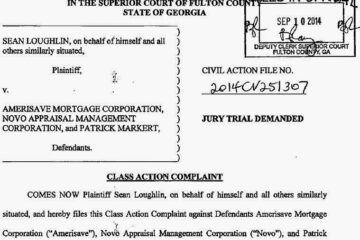In its amended complaints, the FDIC does not seek to re-plead any negligence or other tort claims. Instead, the FDIC recasts its breach of contract claim in each lawsuit into 2 parts: (1) for breaches relating to appraisals delivered prior to the execution of the comprehensive written contract between each AMC and WaMu (a small number of appraisals in each case for which the FDIC seeks damages of $8 million against LSI and $15 million against CoreLogic), and (2) for breaches relating to appraisals delivered during the period covered by each executed contract (a much larger number of appraisals in each case for which the FDIC seeks $145 million in damages against LSI and $113 million against CoreLogic). If this strategy succeeds, it would aid the FDIC by blunting some of the effect of the limitations of liability found in each company’s comprehensive contract with WaMu. Aiming for that same goal, the FDIC also has added a brief allegation that any cap on liability should be disregarded because of each AMC’s alleged gross negligence — the FDIC’s presumed theory being that under New York law, parties generally cannot limit their liability for gross negligence. Here is that allegation from the amended complaint against CoreLogic:

